Written By: Darryl W. Thomas, Jr.
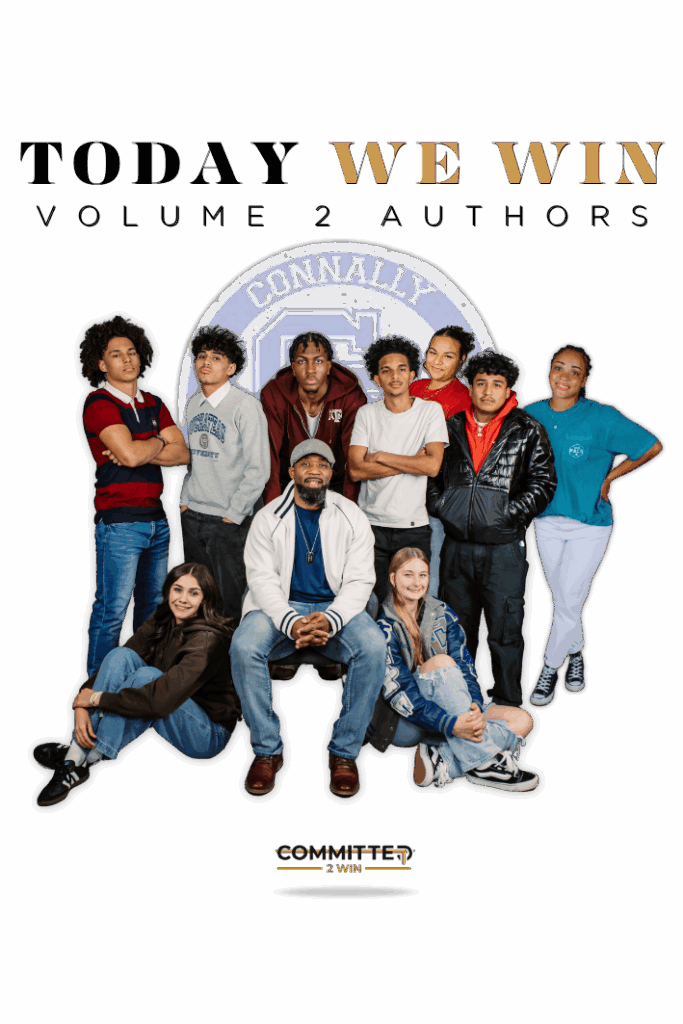
Shocking Realities
November is Men’s Mental Health Awareness Month, yet the crisis among men—especially those aged 16–24—remains largely unseen. Consider these statistics:In 2023, the suicide rate among males was nearly four times higher than that among females—about 22.8 deaths per 100,000 men compared to 5.9 for women.
- Suicide remains the second leading cause of death for young people ages 10–34 in the U.S.
- These are not just numbers—they reflect young men silently fighting battles with far too little support.
Everyday Wars: Military Deployment vs. Life at Home
As a U.S. Marine who served in Kuwait (2003) and Iraq (2004), I know what combat looks like. I faced enemies, exhaustion, fear, and the weight of being accountable for others’ lives.
But the wars don’t end when the uniform comes off. Young men today fight battles too—academic pressures, racial bias, job expectations, relationship demands, identity crises—equally real, equally destructive if unaddressed.
In both war zones, mental and emotional well-being must be prioritized. What you see, you can’t unsee. The trauma isn’t always visible—but it lingers.
Why Young Men Need Help Now
Young men (16–24) often carry silent burdens:
- The demand to “be strong” suppresses vulnerability.
- School, extracurriculars, work, family—all in a balancing act.
- Social media and cultural expectations add fuel to the fire of anxiety.If left unchecked, this stress becomes trauma, and trauma can lead to despair.
Three Practical, Proven Tips to Improve Mental Health
- 1. Encourage Open, Honest Conversation to Create environments where young men can speak without judgment. A simple question like “How are you really doing?” can break the silence. Chat with a peer, coach, or mentor. The most potent antidote to isolation is connection.
- 2. Build a Routine Anchored in Movement and PurposeExercise reduces anxiety and builds resilience. Commitment to physical movement—whether lifting, running, or team sports—signals you’re worth the effort. Add a simple daily goal or habit you stick to. The structure will give your mind something to hold onto.
- 3. Teach Self-Awareness and RegulationHelp young men recognize triggers: fatigue, stress, unmanaged expectations. When they identify what pushes them off balance, they regain control. Couple that with a mental reset: meditation, journaling, prayer. Awareness leads to action.
Why Our Mission Matters: Hope for the Underdogs
Many youth we serve are emotionally imprisoned, not just physically. They’ve experienced trauma—neglect, abuse, systemic obstacles. Too often they lack the tools to process it.Our initiative—Hope for the Underdogs—uses leadership development and literacy programs (including our books TODAY… I WIN and TODAY WE WIN Volumes 1 & 2) to equip these young men with confidence, voice, and a pathway out of silence.Your support helps break the cycle. You help transform young men from wounded warriors into healthy leaders.Call to ActionSupport our work by sponsoring a young man’s participation in Hope for the Underdogs. Visit: https://www.committed2win.com/hopefortheunderdogs
Mark your calendar for the 2025 KING ME Conference, December 12–13 in Waco, TX—dedicated to young men’s leadership and mental wellness. For more info: [email protected]
Share this article. Talk about it. Ask the young men in your life: “How are you doing?” Your concern could launch a conversation that saves a life.
About Darryl W. Thomas, Jr.Darryl W. Thomas, Jr. is a U.S. Marine veteran (Kuwait 2003, Iraq 2004), leadership expert, award-winning speaker, holds a master’s in Educational Leadership and five-time bestselling author. Married 24 years to his high-school sweetheart and father to five children—ranging from a Marine to a TCU graduate—Darryl leads Committed 2 Win. He has dedicated more than two decades to empowering young men, advocating for mental health, and restoring community legacies.
📧 Contact Us: [email protected] | (254) 405-7245🌐 http://www.committed2win.com📺 YouTube Live Tuesdays @ 8:15 PM CST – @1DarrylWThomasLet’s normalize the conversation. Let’s empower young men and men alike to not just survive, but to thrive. Freedom from the internal war starts with awareness—and it starts with you.
References1 Suicide – National Institute of Mental Health (NIMH). Retrieved from https://www.nimh.nih.gov/health/statistics/suicide2 NCHS Data Brief No. 509 September 2024 – CDC. Retrieved from https://www.cdc.gov/nchs/data/databriefs/db509.pdf
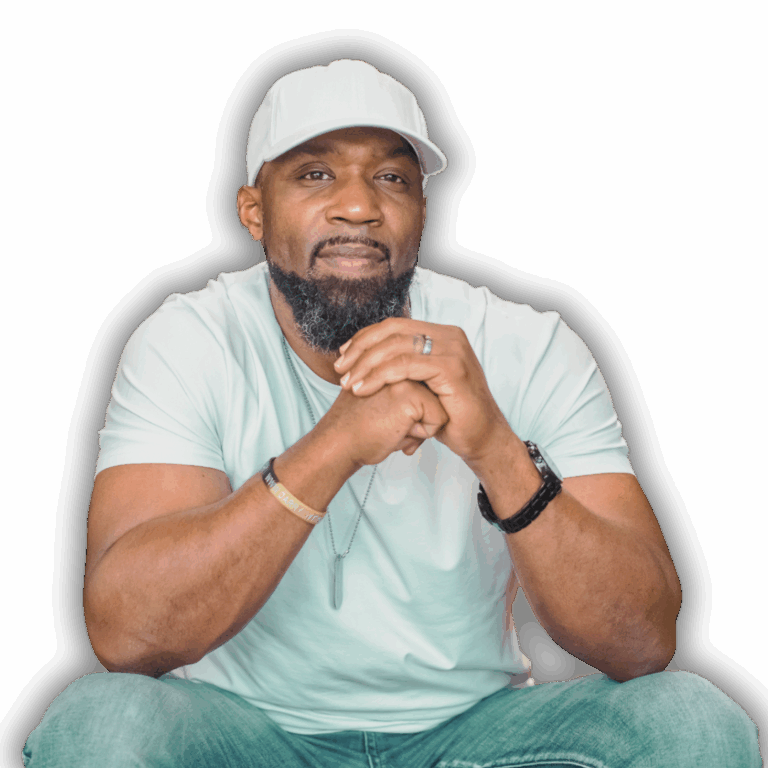
Darryl W. Thomas, Jr. is a U.S. Marine, leadership development expert, award-winning speaker, five-time bestselling author, and at-risk interventionist with over two decades of experience. He is the CEO of Committed 2 Win, a personal and leadership development community focused on inspiring, challenging, and empowering young people and adults to overcome adversity and take ownership in becoming the best version of themselves.Beyond his professional achievements, Darryl is a devoted family man, married to his high school sweetheart for 24 years and father to five children: a U.S. Marine, a TCU graduate, a University High School graduate, and two University High scholar-athletes.Let’s continue this conversation and ensure that every student knows they are not alone on their journey.Follow Darryl at LinkedIn, X and YouTube.
Breaking the Emotional Chains that Bind Us
BY: Darryl W. Thomas, Jr.

When we celebrate Independence Day, we pledge pledging allegiance under a banner that declares our freedom. Yet, for countless Americans, freedom is merely surface-deep. Emotionally and psychologically, they remain imprisoned — not by walls or guards, but by trauma that echoes in their minds.
According to the National Center for PTSD, a staggering 70% of U.S. adults experience at least one traumatic event in their lifetimes, and up to 20% — over 44 million people — will develop PTSD symptoms. These aren’t just numbers — they reflect deeply lived struggles that shackle hearts long after the event.
The Hidden Chain of Trauma
Freedom is never free — not from the battlefield, prison bars, or personal loss. As a U.S. Marine who served in Kuwait (2003) and Iraq (2004), I experienced the chaos of combat firsthand. In war, you see the enemy. In life, trauma can be invisible, internal, and infinitely more destructive.
I, too, carry these scars — not just from war, but from my youth. A string of betrayal, neglect, and emotional distress left its mark. I learned that true freedom is not cheap, and it comes at a hefty price. This is especially true when it comes to trauma, anxiety, wounds, and guilt.
The 11-Figure Price Tag
Freedom demands one thing: F-O-R-G-I-V-E-N-E-S-S. This 11-figure price tag requires courage, vulnerability, and grace. Many people are not willing to pay such a price but it’s the essential currency that buys freedom.
When it comes to forgiveness, there are five strategies to consider:
1. Forgive Others- Holding onto anger or pain only strengthens the chains. Release those who hurt you.
2. Forgive Yourself- Guilt is a cruel jailer. Recognize that you did the best you could. Choose grace over shame.
3. Seek Support- Therapy, prayer, or mentorship isn’t a sign of weakness — it’s courage in motion. Freedom often needs someone beside you.
4. Narrative Liberation-Tell your story — whether to a trusted ally or through journaling. Reclaim the narrative from the eyes of trauma.
5. Serve Someone- Else Helping another person reveals your resilience and reclaims your power. Gratitude and purpose heal the heart.
Chains Upon Chains: Youth Behind Bars
The most heartbreaking prisons are emotional and invisible. In Texas, juvenile offenders are often chained emotionally by trauma. Between 75–93% of incarcerated youth have experienced at least one traumatic event, compared to just 34% of their peers. Many arrive emotionally wounded and leave further scarred.
That’s why Hope for the Underdogs isn’t just a summer initiative based on literacy — it’s a freedom movement. By equipping these young men and women with stories of triumph (TODAY… I WIN, TODAY WE WIN Volumes 1 & 2), we’re planting seeds of liberation. We’re offering them a path to forgive, heal, and break the chains that bound them.
You Can Join the Freedom MissionFreedom from trauma isn’t an abstract ideal — it starts in our communities. Here are four ways you can join the mission:
- Sponsor a Youth: Your support provides books and mentorship, forging pathways to healing.
- Share the Word: Spread our mission through your network. With awareness, we dismantle stigma.
- Partner with Hope: Host workshops, donate resources, or volunteer time.Invite Dialogue:
- Talk about trauma and forgiveness at church, school, or community events.
Final Call: Freedom Is Waiting
Freedom isn’t a moment — it’s a journey that reads: “To those who hurt me…but most, to the parts of myself I blamed.” By forgiving others and ourselves, we dismantle emotional prisons and allow our souls to breathe.To the parents, pastors, educators, and patriots reading this — I challenge you: will you pay the price of freedom? Let forgiveness — spiritual, emotional, personal — buy your liberation.Help our children feel freedom’s promise this summer through Hope for the Underdogs. Your sponsorship and voice can help set a generation free — literally, emotionally, spiritually.
This July, let’s not only celebrate freedom — let’s live it. Forgive, heal, and combat emotional imprisonment — for your family, your community, and the undamaged hearts waiting for us at Hope for the Underdogs.
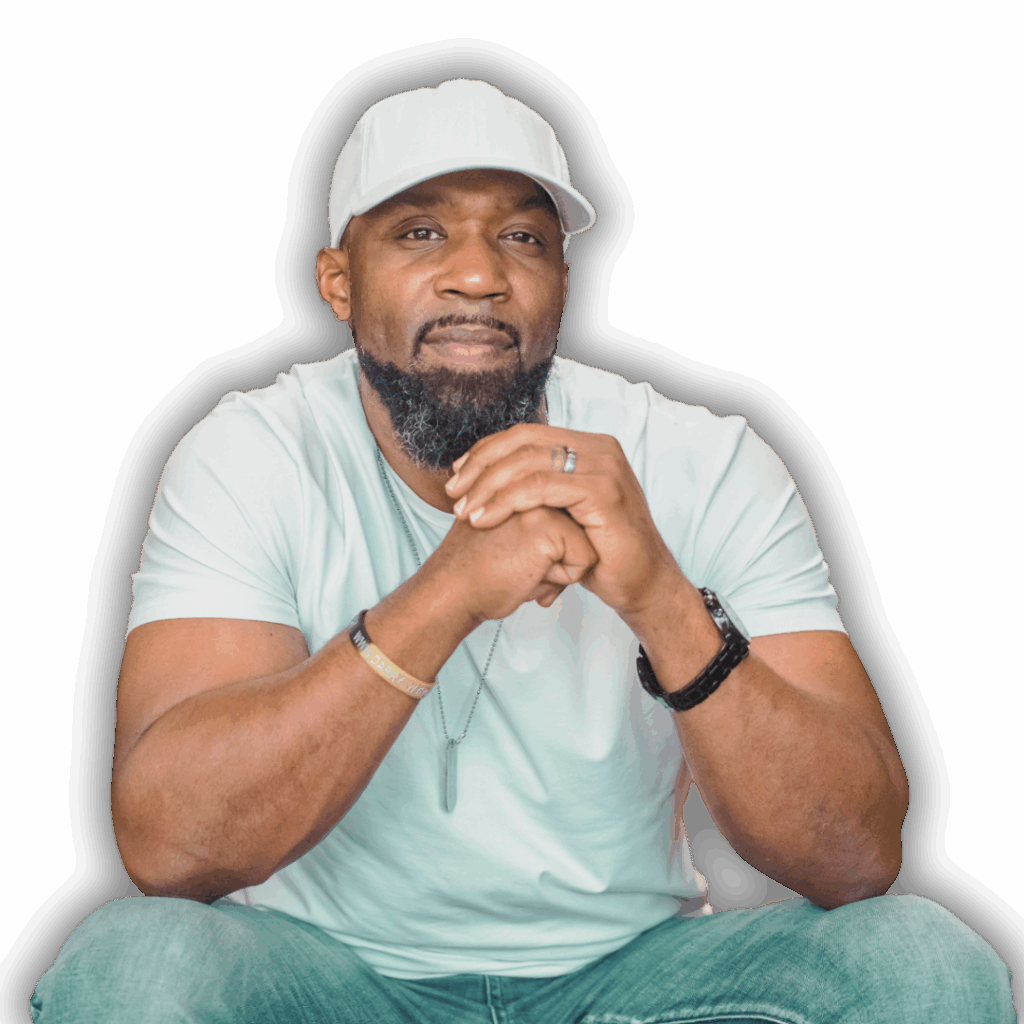
Darryl W. Thomas, Jr. is a U.S. Marine veteran (Kuwait, 2003; Iraq, 2004), leadership expert, award-winning speaker, and five-time bestselling author. A devoted family man—married 24 years, father of five, and founder of Committed 2 Win—he’s spent over 20 years helping individuals heal, lead with integrity, and break cycles of trauma.Connect with Darryl📧[email protected]🌐 www.committed2win.com/hopefortheunderdogs 📺 YouTube Live Tuesdays @6 pm CST: @1DarrylWThomas
By Darryl W. Thomas, Jr.
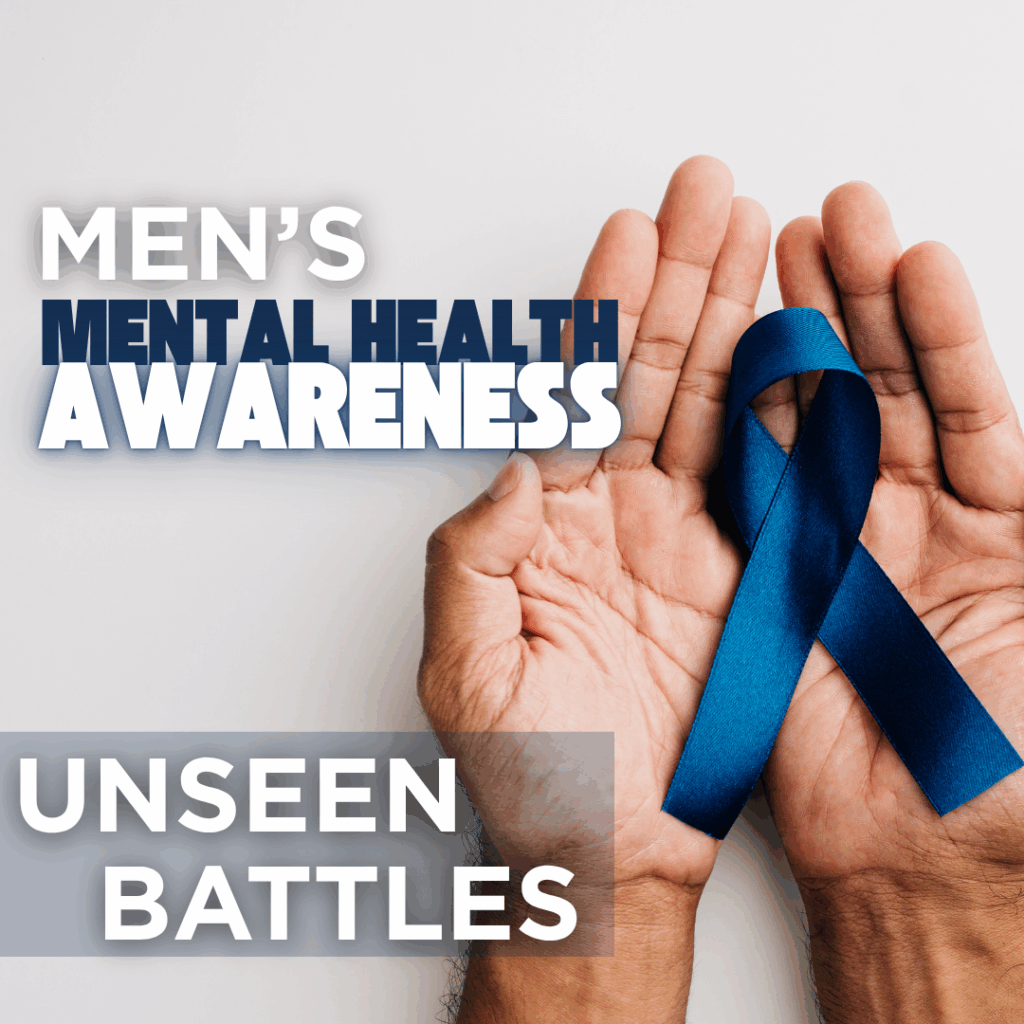
A Battle Worn Long After the War
What if I told you that men are five times more likely than women to apply a permanent solution to a temporary problem? Would that shock you? Afterall, we as men like to get the job done, right? Well in this case it is sad but true… yet wrong.
More than 49,000 Americans died by suicide in 2022, and males accounted for nearly 80% of those deaths — nearly five times higher than women — highlighting a silent crisis among men, especially fathers and husbands.
For family men, this pressing reality is a reminder: the battles fought on the home front are as real and field-tested as those in overseas combat.
Comparing Wars: The Marine and the Dad
Having served our country from 2000 to 2005; I was one of many called into wartime situations. As a U.S. Marine, I spent time in Kuwait in 2003 and Iraq in 2004. One prominent lesson that I learned is that battle fatigue isn’t left on the battlefield. PTSD, a brutal companion in wartime, finds its way home. Making the internal battles more complex and difficult to conquer.
A year after leaving the Corps, my wife began to show signs of a debilitating, incurable, and hereditary disorder as she was pregnant with our third child. To say that it was challenging is a gross understatement. So, my load was comprised of dealing with PTSD coupled with trying to stay present for a sick spouse, maintaining emotional availability for three children – ultimately five, operating a business, working a 9-5 job and serving the community.
I discovered that I was not the only man dealing with such heaviness. I also learned that, in combat, the enemy is visible. At home, the enemy often hides in exhaustion, emotional silence, guilt, and the heavy expectation to carry all burdens alone.
As a family, your peace is vital. In light of June being the month that we celebrate fathers and Men’s Mental Health Awareness month, I implore all fathers to consider the following.
Three Ways Fathers Can Protect Their Peace
- Battle Begins with Boundaries- Protect your non-negotiable time for family dinners, prayer, and exercise like you would mission-critical operations. Leave work at work. Be where your feet are. Oftentimes, your presence is more important than your provision. It’s here that mental and spiritual strength are safeguarded.
- Deploy Your Support Network- In the Corps, every Marine has a battle buddy. At home, you can create a similar system — regular check-ins with another father, a mentor, or a counselor help fight isolation and toxic stoicism. Don’t be that lone wolf because a lone wolf will starve.
- Own Your Emotional Scars- PTSD and anxiety don’t look a certain way. I don’t care how well you try to dress it up, it will reveal itself. When untreated it can cause collateral damage. Success at work cannot mask the emotional scars. Your community involvement cannot conceal unhealed wounds.
Courageously admitting that there are issues begins the path to healing. Again, don’t face them alone. Taking that first step is an act of courage that models strength for your family.
Three Additional Strategies to Secure the Home Front
- Routine Physical Readiness:Complete at least three workouts per week — whether it’s a brisk walk around the neighborhood, a ruck march, a lifting session in the garage or weight-training at the gym. Implement a routine of bodily exercise to regulate stress, release endorphins, and maintain clarity.
- Spiritual Resupply:Engage in weekly (if possible, daily) spiritual practices — Bible study, meditation, or prayer walks — to replenish the inner well from which you lead. This strategy is a gamechanger.
- Intentional Debriefing:Schedule a monthly “T-time discussion” with your spouse. The more frequent the discussion, the better. What is T-time? It is short for truth time. This is a moment to discuss wins, struggles, and emotional needs honestly without judgement. It invites connection and clarifies purpose.
Closing Words to the Warriors at HomeMen, the uniform may come off, but your battles don’t. Strength is not measured by how much you can carry — it’s proven by how bravely you choose healing. Your legacy isn’t built in silence but in the courage to open up, rest, and invite support.
Mission Orders Start Today: Choose one tip and commit. Join the Brotherhood: Be in the house—virtually—this Tuesday at 6 pm CST on YouTube Live (@1DarrylWThomas) for my REAL Talk Tuesday session. Let’s stand together and talk real. https://www.youtube.com/@1darrylwthomas/streams Engage Back: Comment on what tactic you’re using to guard your mental health or share a story that inspires.And please think about supporting our Hope for the Underdogs summer initiative. A father’s healing helps a generation bloom. Your participation can make a difference.
http://www.committed2win.com/hopefortheunderdogs

Darryl W. Thomas, Jr. is a U.S. Marine Corps veteran, leadership development expert, award-winning speaker, five-time bestselling author, and at-risk interventionist with over two decades of experience. He is the CEO of Committed 2 Win, a personal and leadership development community focused on inspiring, challenging, and empowering young people and adults to overcome adversity and take ownership in becoming the best version of themselves. Beyond his professional achievements, Darryl is a devoted family man, married to his high school sweetheart for 24 years and father to five children: a U.S. Marine, a TCU graduate, a University High School graduate, and two University High scholar-athletes.
Written by: Darryl W. Thomas, Jr.
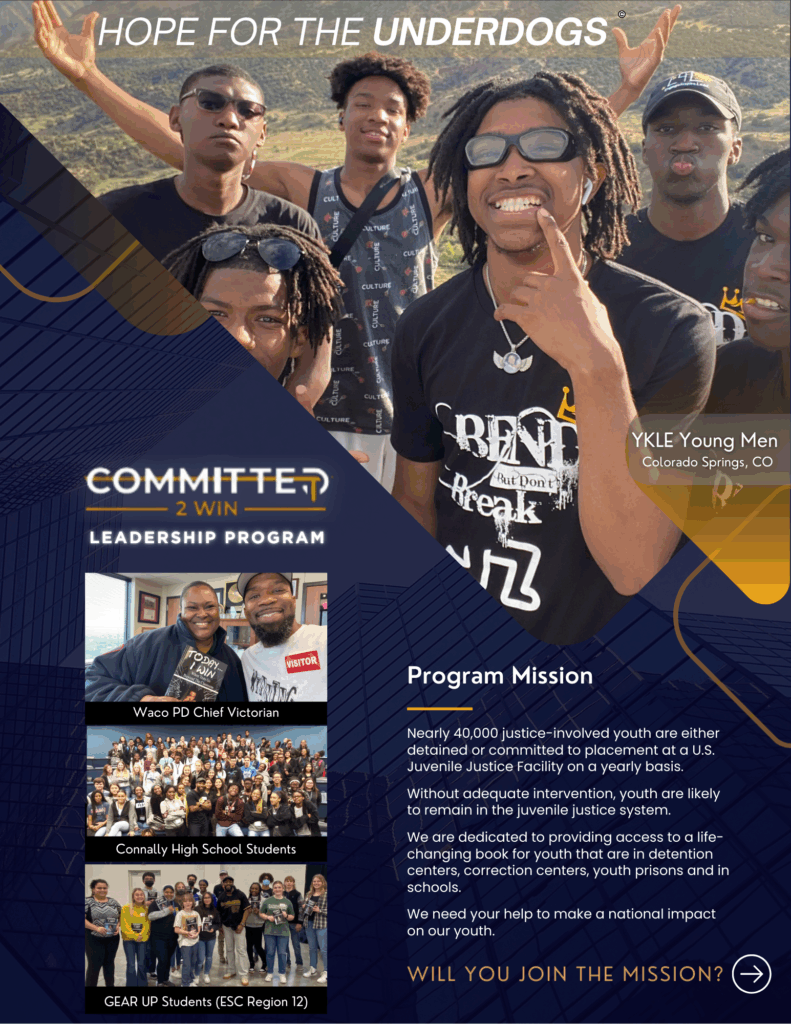
In the heart of Texas, a transformative movement is taking root—Hope for the Underdogs, a summer initiative by Committed 2 Win. This program is more than a seasonal project; it’s a lifeline for justice-involved youth, aiming to break the cycles of illiteracy and recidivism that have long plagued our communities.
The Literacy-Recidivism Link
In my journey working with justice-involved youth, I’ve witnessed firsthand how the inability to read proficiently can limit a young person’s potential and contribute to a cycle of incarceration. It’s a harsh reality: over 70% of inmates in America’s prisons cannot read above a fourth-grade level. Moreover, 85% of juveniles who interact with the juvenile court system are functionally illiterate.
In Texas, the situation is equally concerning. The juvenile recidivism rate stands at 46.7%, meaning nearly half of all juvenile offenders are arrested again within three years. These statistics aren’t just numbers; they represent real lives affected by a lack of access to education and resources. They underscore the urgent need for interventions that address literacy as a foundational skill for rehabilitation and reintegration.Through initiatives like Hope for the Underdogs, we’re striving to change this narrative by providing young people with the tools they need to succeed, both inside and outside the classroom.
Our Mission: Literacy as Liberation
Hope for the Underdogs is committed to reversing these trends by equipping detained youth with the tools they need to succeed. Central to our initiative are three powerful books:
- TODAY… I WIN: When Tests Go Beyond the Classroom
- TODAY WE WIN: How Real Students Found the Answers to Life’s Test (Volumes 1 and 2)
These Amazon bestsellers are not just reading materials; they are catalysts for change, offering relatable narratives that inspire and empower.
Statewide Impact
This summer, our initiative will reach across Texas, bringing our literacy and leadership programs to juvenile detention centers, schools, and community organizations. By focusing on reading comprehension, critical thinking, and personal development, we aim to reduce recidivism rates and foster a new generation of leaders.
Join the MovementWe invite educators, community leaders, and concerned citizens to support our mission. Here’s how you can get involved:
- Partner with Us: Collaborate to bring our programs to your local institutions.
- Sponsor Books: Provide resources for detained juveniles across the state of Texas.
- Spread the Word: Share our mission with your networks to raise awareness.
Together, we can rewrite the narratives of countless young Texans, turning stories of struggle into tales of triumph.For more information, visit www.committed2win.com/hopefortheunderdogs.
Note: The statistics and references provided are based on available data and aim to highlight the importance of addressing literacy in efforts to reduce juvenile recidivism.
Darryl W. Thomas, Jr. is a U.S. Marine Corps veteran, leadership development expert, award-winning speaker, five-time bestselling author, and at-risk interventionist with over two decades of experience. He is the CEO of Committed 2 Win, a personal and leadership development community focused on inspiring, challenging, and empowering young people and adults to overcome adversity and take ownership in becoming the best version of themselves. Beyond his professional achievements, Darryl is a devoted family man, married to his high school sweetheart for 24 years and father to five children: a U.S. Marine, a TCU graduate, a University High School graduate, and two University High scholar-athletes.
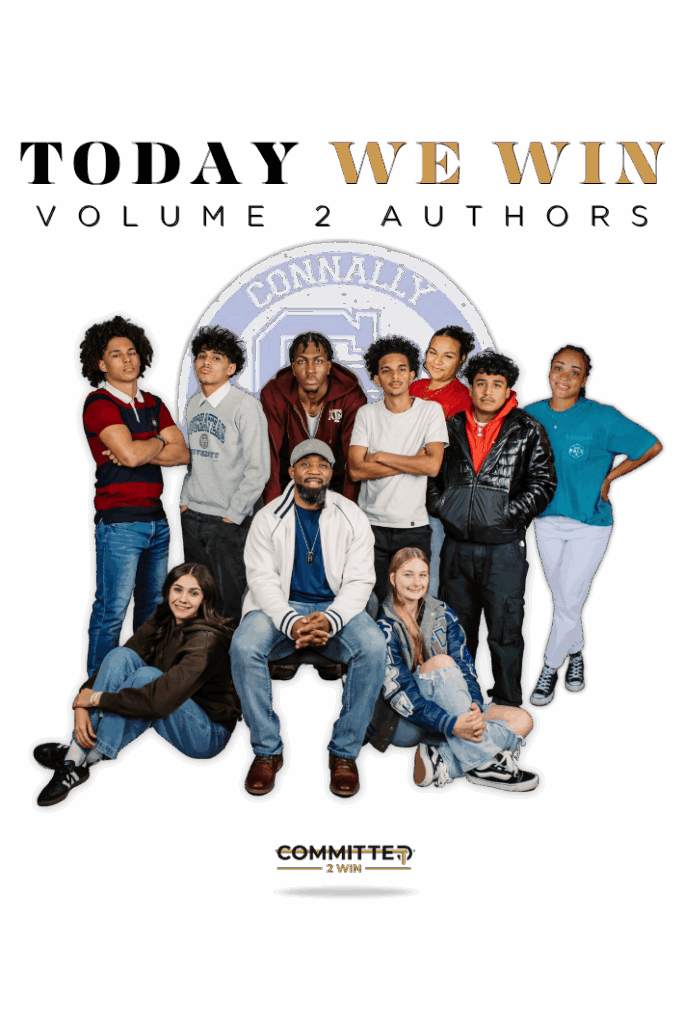
A Crisis in the Shadows
As graduation caps soar, a sobering reality grounds us: during the 2020–2021 academic year, over 60% of college students met the criteria for at least one mental health problem, according to the Healthy Minds Study, which collects data from 373 campuses nationwide (Lipson et al., 2022). This statistic underscores the urgent need to address mental health as students transition into adulthood.
The Power of Storytelling
At Connally High School in Waco, Texas, students confronted these challenges head-on through the Captains Circle Peer Leadership Program. Their experiences culminated in Today We Win: How Real Students Found the Answers to Life’s Tests (Volume 2), an anthology of personal narratives that delve into struggles with bullying, family dynamics, academic pressures, and self-doubt. This project not only provided a therapeutic outlet but also fostered a sense of community and resilience among the participants.
Celebrating Resilience
Special recognition goes to five remarkable students—Isaac, My’Toria, Caleigh, Bryson, and Alaina—who graduated last week. Their contributions to the book exemplify the courage and introspection needed to confront mental health challenges head-on. Their stories serve as beacons of hope for peers facing similar struggles.
Two Strategies for Supporting Student Mental Health
- Encourage Open Dialogue: Create safe spaces where students feel comfortable discussing their mental health without fear of judgment.
- Promote Access to Resources: Ensure that students are aware of and have access to mental health services, including counseling and support groups.
An Invitation to Empower
As we celebrate Mental Health Awareness Month and the achievements of the Class of 2025, we invite schools and communities to partner with Committed 2 Win. Together, we can create safe spaces, establish support groups, and promote sustained student success for the 2025–26 school year.
References
Lipson, S. K., Lattie, E. G., & Eisenberg, D. (2022). Trends in college student mental health and help-seeking by race/ethnicity: Findings from the national Healthy Minds Study, 2013–2021. Journal of Affective Disorders, 306, 138–147.

Darryl W. Thomas, Jr. is a U.S. Marine, leadership development expert, award-winning speaker, five-time bestselling author, and at-risk interventionist with over two decades of experience. He is the CEO of Committed 2 Win, a personal and leadership development community focused on inspiring, challenging, and empowering young people and adults to overcome adversity and take ownership in becoming the best version of themselves.Beyond his professional achievements, Darryl is a devoted family man, married to his high school sweetheart for 24 years and father to five children: a U.S. Marine, a TCU graduate, a University High School graduate, and two University High scholar-athletes.Let’s continue this conversation and ensure that every student knows they are not alone on their journey.Follow Darryl at LinkedIn, X and YouTube.
By Charles Ray Harris
In support of the Caritas Veterans Case Management Program, I serve as the case manager. The program, funded by the Texas Veterans Commission Fund for Veterans Assistance, provides supportive services to low-income veterans and surviving spouses, living in McLennan, Bosque, Falls, Freestone, Limestone, and Hill counties.
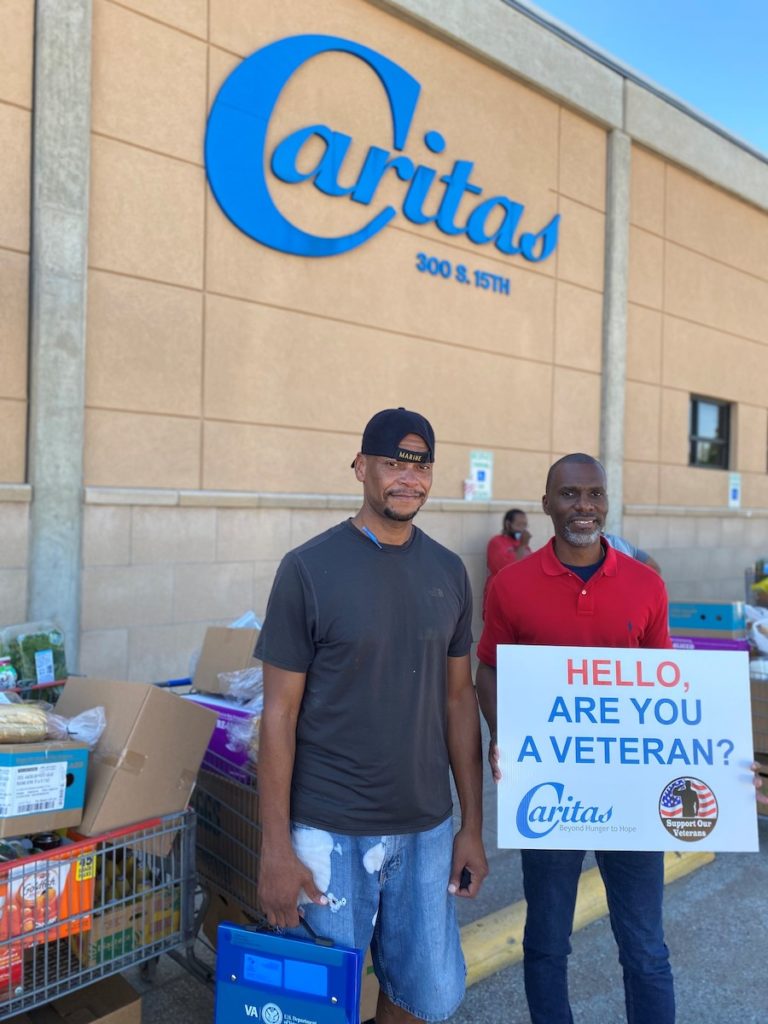
Being a veteran myself, I appreciate and I am honored to work for an organization that provides services to assist this special population. I served over 20 years as a non-commissioned officer in the U.S. Army. The main role of an NCO is the welfare of the soldier and his or her family.
At Caritas, I am doing the same thing I did in the Army, but now the soldier is a veteran. This is a very important program, and I am thrilled to be a part of helping and empowering veterans and their families.
The Veterans Case Management Program takes a two-step approach, focusing on basic needs leading to long-term stability. In order for a person to thrive, basic needs must be met before they are able to build stability.
Available resources include assistance with rent and mortgage, utilities, food, and other emergency services. In addition, the program helps clients gain long-term employment at a living wage. Employment services include pre-vocation training and testing, financial assistance for certification, licensing and educational materials, clothing for employment, and assistance for childcare and transportation costs.
As the case manager, I am here to ensure veterans secure the benefits rightfully earned in exchange for their service in our nation’s armed forces. To schedule an appointment, I can be reached at 254-753-4593 ext. 233, or by cell at 254-644-9391, or [email protected].
For more information on Caritas of Waco, please visit caritas-waco.org.
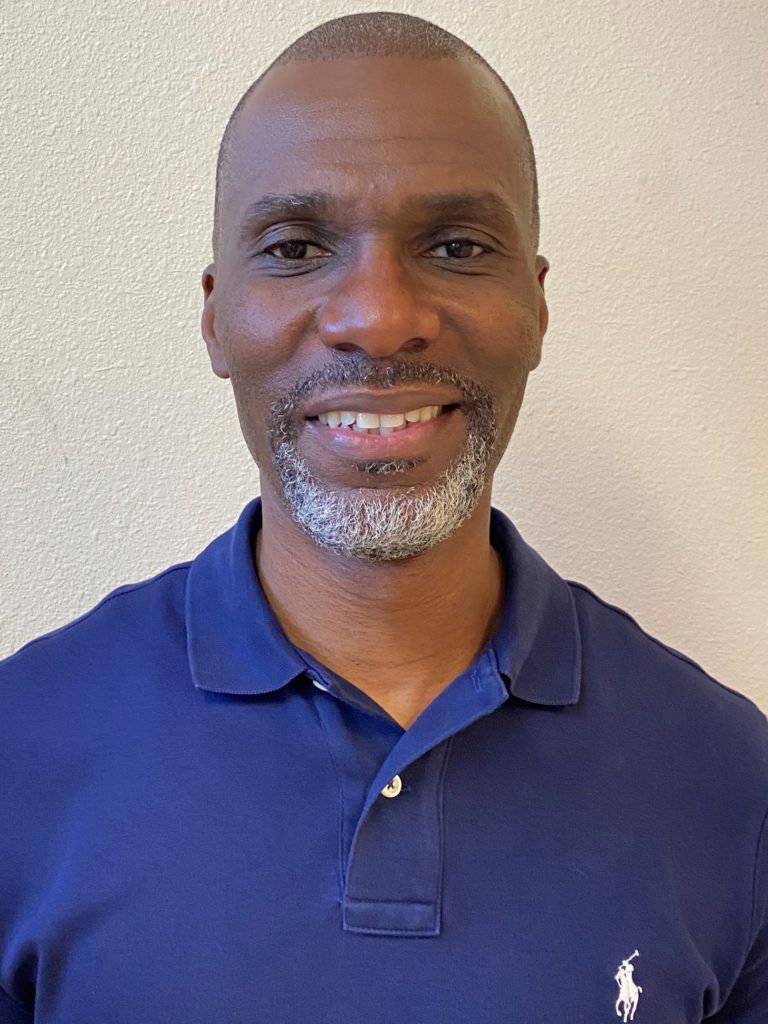
First Sgt. Charles Ray Harris, Jr., USA, retired, was born and raised in Waco and graduated from Jefferson Moore High School. He served over 20 years in the U.S. Army before retiring. After the military, he graduated from Tarleton State University with a bachelor’s degree in business. He also graduated from McLennan Community College with an associate’s degrees in social work, youth counseling, and mental health counseling. He has been married for 35 years and has one daughter.
The Act Locally Waco blog publishes posts with a connection to these aspirations for Waco. If you are interested in writing for the Act Locally Waco Blog, please email Ferrell Foster at [email protected].
by Phil York, Act Locally Waco Housing and Homelessness Policy blogger
“It is simply unacceptable for individuals, children, families and our nation’s Veterans to be faced with homelessness in this country” – President Obama, June 18, 2009.
Who is your favorite superhero?
It seems like the silver screen is flush with superhero smash hits every summer. Batman, with his man cave and great car, is my second favorite superhero. But before I was acquainted with Warner Brothers and Marvel Comics, my first favorite superhero was (and continues to be) my Father. Like all other superheroes, my Dad wore a superhero suit (his uniform), and in my eyes, saved the world each day during his career in the United States Navy.
In my previous posts we have discussed the broad implications of homelessness and how homelessness affects our community, our economy and our youth. Today we will unwrap a basic understanding of homelessness among Veterans: Our American Heroes.
National Policy
The Obama Administration publically calls housing a basic human right. The flagship federal agency for housing initiatives, policy, and public funding related to housing is Housing and Urban Development (HUD). Under the leadership of Secretary Shaun Donovan, HUD and many other agencies partner so we can do more about homelessness through a holistic approach. That collaborative group is called The United States Interagency Council on Homelessness (USICH). It is an independent agency comprised of 19 Cabinet Secretaries and agency heads that coordinate responses to homelessness. HUD, USDA, Department of Veteran Affairs, Social Security Administration, and Department of Homeland Security are just a few of the partner agencies involved.
This interagency collaboration is mandated by The Hearth Act (signed into law by President Obama May 2009). President Obama’s Opening Doors Plan (drafted in 2010), is the United States’ first comprehensive strategy to prevent and end homelessness. The Plan is focused on four key goals: (1) Finish the job of ending chronic homelessness in five years; (2) Prevent and end homelessness among Veterans in five years; (3) Prevent and end homelessness for families, youth, and children in ten years; and (4) Set a path to ending all types of homelessness. USICH uses this plan to guide program implementation.
How are we doing?
Here is a timeline of the progress that has been reported regarding homeless Veterans:
2009 – According to President Obama’s plan document (p. 20), in 2009, the VA estimated 107,000 homeless Veterans on any given night.
2010 – According to Green Doors, a central Texas nonprofit corporation and a Veteran advocacy group, the Department of Veteran Affairs (VA) estimated that on any given night there were 76,000 homeless veterans sleeping on American streets.
2011 – On December 13, 2011, HUD released the 2011 Point-In-Time Count Report that showed there were 67,495 homeless veterans in the United States (including sheltered and unsheltered). Among those reported were 1,500 in Texas, and 40 in Waco/McLennan County.
2012 – According to Housing and Urban Development’s Point-in-Time Survey, January 2012, 62,619 veterans were homeless on a single night in January 2012. Texas had by far the largest number of homeless veterans among statewide counts with 1,481 homeless veterans on a single night.
2013 – HUD’s “2013 Continuum of Care Homeless Assistance Programs Homeless Populations and Subpopulations Report” states the count of homeless veterans (sheltered and unsheltered) as 58,063. According to a blog post by Secretary Donovan on December 2013, “The numbers since 2010 when Opening Doors was created are encouraging… homelessness among Veterans fell an incredible 24 percent.” He credits this improvement to the strong working partnership between HUD and Veterans’ Affairs and to a commitment to learning from evidence-based research.
A lot left to Un-Wrap
The most common metric in homelessness policy is the Point-In-Time Count. Most communities conduct a Point-In-Time count once a year, usually in January. It counts people who are unsheltered or in emergency shelters or transitional housing. Families, youth, and other individuals who are doubled up are not included. The Point-in-Time Count may be the best we can do as far as measuring homelessness, but it is far from perfect.
When I served as a Point-In-Time surveyor in Brazos County, “are you a Veteran?” was a question on the verbal survey. There are several important things to consider about that question:
- The survey itself is voluntary
- This specific question is a voluntary, self-selected answer
- Depending on its place in the survey order, it may not be asked before the participant elects to end the conversation
- The participant needs to trust the surveyor; without trust little information can be collected.
Given the flaws of the Point-In-Time Survey that several of our sources identify, I am reluctant to share HUD’s rosy estimate of the progress that has been made. I agree that the data from multiple sources supports the conclusion that we have made at least some steps in the right direction; the question remains of how large those steps have been.
I say that not to be pessimistic about our progress, but to make sure we complete the race before we celebrate its end. If data points are used to judge success or failure of our agencies we need to know as informed citizens the nature of that data. The data collection challenge is a reoccurring theme across all topics and demographics of homelessness. It is worth describing in each blog as it affects each group uniquely.
One uniform opinion across data sources is that the true number of homeless veterans is more than likely higher than the estimate. Much work remains to be accomplished with this important population. Considering their sacrifice, our Veterans and their families remain our heroes long after they retire their uniforms. I look forward to our next discussion about this important topic.
 Phil York, Director of Development at Waco Habitat for Humanity, is a self-described “policy nerd;” he is also the Act Locally Waco housing and homelessness policy blogger. You can direct questions to Phil to [email protected]. Would you be interested in blogging for Act Locally Waco? If so please email [email protected].
Phil York, Director of Development at Waco Habitat for Humanity, is a self-described “policy nerd;” he is also the Act Locally Waco housing and homelessness policy blogger. You can direct questions to Phil to [email protected]. Would you be interested in blogging for Act Locally Waco? If so please email [email protected].
